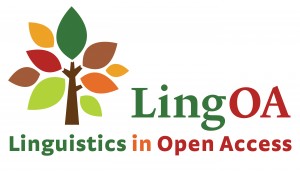Opacity: Latin American narrative written by women in the 21st century
DOI:
https://doi.org/10.32870/vel.vi9.87Keywords:
Literature of no fxed abode,, Samanta Schweblin,, Lina MeruaneAbstract
This article supports the pertinence of the conception of “Literature without a Fixed Aboved” in order to analyse contemporary Latin American literature. Based on the works of three young Latin American writers, this paper aims to establish a new global scenario where traditional organizational concepts of the national literatures have stopped working. Throughout this text, I will mainly focus on the short stories by Samantha Schweblin, an Argentinian living in Berlin; the novel Manège by Laura Alcoba, a French-Argentinian who lives in Paris since the seventies; and a chronicle by Lina Meruane, a Chilean resident in New York. All these literary works confgure a universe and a fuctuant, dynamic, unstable writing.
Downloads
Metrics
References
Alcoba, L. (2007). Manèges. Une petite histoire argentine. París, Francia: Gallimard.
Alcoba, L. (2008). La casa de los conejos (Traducción por L. Brizuela). Buenos Aires, Argentina: Edahsa.
Alcoba, L. (2009). The rabbit house. A cildhood in hiding (Traducción por P. McLean). Londres, Inglaterra: Portobello Books.
Alcoba, L. (2010). Das kaninchenhaus (Traducción por A. Ammar). Berlín, Alemania: Insel Verlag.
Alcoba, L. (2014). Utilizo mi experiencia personal para indagar en la memoria colectiva. Recuperado el 13 de
enero de 2017 de http://www.infobae.com/2014/09/21/1596366-utilizo-mi-experiencia-personal-indagar-la-memoria-colectiva/
Anderson, B. (1993). Comunidades imaginadas. Refexiones sobre el origen y la difusión del nacionalismo (Traducción por E. L. Suárez). México: Fondo de Cultura Económica.
Auerbach, E. (1967). Philologie der Weltliteratur. En F. Schlak y G. Konrad (Eds.), Gesammelte Aufsätze zur romanischen Philologie (pp. 301-310). Berna, Suiza/Múnich, Alemania: Franke.
Barthes, R. (1995). Brecht et le discours: contribution à l’étude de la discursivité. En E. Marty (Ed.), Oeuvres Complètes (Volumen 3, pp. 253-265). París, Francia: Seuil.
Del Valle, J. y Stheeman, L. G. (2004). La batalla del idioma: la intelectualidad hispánica ante la lengua. Madrid, España/Frankfurt, Alemania: Iberoamericana/Vervuert.
Ette, O. (1994). “Así habló Próspero”. Nietzsche, Rodó y la modernidad flosófca de “Ariel”. Cuadernos Hispanoamericanos, (528), 49-62.
Ette, O. (2001). Literatura de viaje. De Humboldt a Baudrillard (Traducción por A. A. Delgado). Ciudad de México: Universidad Nacional Autónoma de México/Servicio Alemán de Intercambio Académico.
Ette, O. (2004). Una literatura sin fronteras: ficciones y fricciones en la literatura cubana del siglo xx. En A. Birkenmaier y R. González Echevarría (Eds.), Cuba: un siglo de literatura (1902-2002) (pp. 407-432). Madrid, España: Colibrí.
Ette, O. (2006). Literatures without a fixed abode. Figures of vectorial imagination beyond the dichotomies of national and world literature. En O. Ette y F. Pannewick (Eds.), ArabAmericas. Literary entaglementes of the American hemisphere and the Arab world (pp. 19-68). Frankfurt, Alemania/Madrid, España: Iberoamericana/Vervuert.
Ette, O. (2016). A national literature without a fxed abode? Fictions and frictions in Twentieth-Century Cuban literature. Writing-Between-Worlds. Transarea studies and the literatures-without-a-fxed-abode (pp. 126-156). Berlín, Alemania: De Gruyter.
Genette, G. (1991). Fiction et diction. París, España: Éditions du Seuil.
Glissant, E. (1990). Poétique de la relation. Poétique iii. París, Francia: Gallimard.
Loynaz, D. M. (1951). Jardín. Madrid, España: Aguilar.
Meruane, L. (2013). Volverse Palestina. México: Consejo Nacional para la Cultura y las Artes.
Rodríguez, I. (1994). House, garden, nation, space, gender and ethnicity in poscolonial Latin American literatures by women. Durham/ Londres, Inglaterra: Duke University Press.
Rodríguez-Mangual, E. (2004). Lydia Cabrera and the construction of an Afro-Cuban cultural núm. 9 / enero-junio / 2017 83 identity. Londres, Inglaterra: University of North Carolina Press.
Saban, K. (2010). Un carrusel de recuerdos: conversación con la escritora argentina Laura Alcoba. Iberoamericana, 10 (39), 250-251.
Schweblin, S. (2015). Siete casas vacías. Madrid, España: Páginas de Espuma.
Torres, V. (2013). Entrevista a Samanta Schweblin, Premio Juan Rulfo. Iberoamericana, xiii (51), 176-181.













